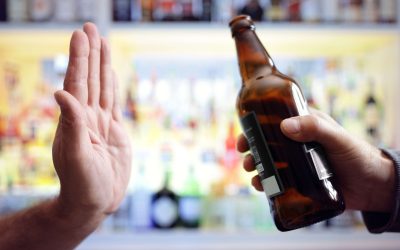Contents
“In new videos and other content, favorite ‘Sesame Street’ characters like Elmo and Abby Cadabby learn what Karli is going through and help their friend to cope,” Sesame Workshop said in a press release. Salia’s parents — Sam and Jaana Woodbury, who are raising four girls in Orange County, California — said they welcomed the show’s attention on opioid and alcohol addiction. Fortunately, Karli’s opioid segments, along with other clips that feature difficult topics, are available free online through the “Sesame excessive alcohol consumption can affect bone health Street in Communities” website, and also available on YouTube. These heavy-handed narratives depicted drug dealers as the root of all evil, and the characters who chose to take them as weak-minded – why won’t they “just say no? ” This completely ignores systemic issues that contribute to drug addiction, and worse, implies that there is a moral failing on behalf of the addict. In another segment, Karli meets a young girl called Salia whose “mom and dad have the same problem as my mom—addiction.”
It was a beautiful way to normalize such a tragedy, to children who are facing that problem, and to those who are fortunate enough to never have to consider it. In a clip released Wednesday as part of Sesame Street’s outreach project Sesame Street in Communities, Karli reveals to Elmo and human Chris that her mom is at a recovery meeting. “Even a parent at their most vulnerable – at the worst of their struggle – can take one thing away when they watch it with their kids, then that serves the purpose,” Einhorn said. The series also features Salia, a ten-year-old from California whose parents have “been there”.
“My mom and dad told me that addiction is a sickness,” Salia said. Karli, voiced and manipulated by puppeteer Haley Jenkins, was joined by a young girl — 10-year-old Salia Woodbury, whose parents are in recovery. The show is soon switching to HBO’s streaming service, HBO Max, in 2020, which really detracts from the show’s mission of providing education and resources to the children who lack access to it.
In the segment, Karli and Salia each hold up hand-drawn pictures of flowers, with multiple petals representing “big feelings” — like anger, sadness and happiness. They offer ways to feel better, including art and breathing exercises. In the segment, Karli and Salia each hold up hand-drawn pictures of flowers, with multiple petals representing “big feelings” – like anger, relationship of anger with alcohol use treatment outcome sadness and happiness. Both of our parents have had the same problem – addiction,” Karli told the camera. “There are over a million children who have to deal with this,” Kristen M. “They need resources. Thankful that ‘Sesame Street’ understands that need and helps kids by giving them a way to understand and seeing that it’s not just their mommy or/and daddy.”

Despite the subject, the mood was light in the room, largely thanks to Jenkins’ calm and empathic manner. Karli, Elmo, Rosita and Abby Cadabby also sing “We’re Special and So Are You.” Viewers are referred to free online resources in both English and Spanish that include videos, storybooks, digital interactives and games. “‘Sesame Street’ has always been a source of comfort to children during the toughest of times, and our new resources are designed to break down the stigma of parental addiction and help families build hope for the future.”
Channing Tatum Reveals If He’ll Ever Tell His Daughter He Used To Be A Stripper
The show also gave birth to some of the most iconic characters in TV history, including Big Bird, Bert and Ernie, Cookie Monster, and Elmo. Karli, a six-year-old yellow-haired Muppet introduced in May, lives with her foster parents, Dalia and Clem. She will tell her backstory in online-only segments as part of the “Sesame Street in Communities” initiative, Sesame Workshop announced Wednesday. “There’s nothing else out there that addresses substance abuse for young, young kids from their perspective,” said Kama Einhorn, a senior content manager with Sesame Workshop.
It’s had puppets with HIV, jailed parents and autism; explored homelessness and women’s rights; and even girls singing about loving their hair. “There’s nothing else out there that addresses substance abuse for young, young kids from their perspective,” said Kama Einhorn, a senior content manager with Sesame Workshop of its new Karli content. Jaana Woodbury, Salia’s mother, said opioid addiction is “a huge crisis.” She said the special series “kind of takes away the stigma and the judgment, and it encourages people to be open-minded.” It’s a story familiar to Salia Woodbury, a 10-year-old girl whose parents battled opioid addiction and are now in recovery. Salia joins Karli in some of the episodes to reassure children of addicted parents that they’re not alone.

It’s also a chance to model to adults a way to explain what they’re going through to kids and to offer simple strategies to cope. Opioid addiction has riddled headlines as of late, and Karli’s Sesame Street storyline is a vital tool that can be used to explain to children that addiction is not their fault and they’re not alone. The educational programming is currently the best resource to simplify complicated issues and can help the 5.7 million children nationwide under the age of 11 who are dealing with the opioid crisis. No doubt the recent segment will raise awareness and further solidifies the longevity of Sesame Street. In a series of new segments, Muppet Karli reveals she’s been living in foster care because her mother is battling addiction.
Sesame Street to cover addiction with new muppet Karli
Salia Woodbury, 10, whose parents are in recovery from addiction, with “Sesame Street” character Karli. Karli, voiced and manipulated by the puppeteer Haley Jenkins, was joined by a young girl whose parents are in recovery. Karli told NBC News that “I love my mom so much” but that “she couldn’t take good care of me because she was having such a tough time.” Discover printables, videos, and more on topics to help the families you work with. According to AP, the duo offers ways to cope with their feelings, including art and breathing exercises.

The “Sesame Street in Communities” project offers supplemental content free to providers, parents and caregivers, designed for kids who are often the unseen victims of addiction. Sesame Street in Communities is now available in both English and Spanish online. Karli’s segment has yet to appear on the HBO and PBS Sesame Street broadcast. As Karli’s story progresses, audiences will learn her history of being placed in foster care and her mother’s treatment progress. The beloved gang of Sesame Street shows no sign of slowing down as the live-action film adaptation, which stars Oscar-winning Anne Hathaway, is slated for a summer 2021 release. Both of our parents have had the same problem — addiction,” Karli told the camera.
Karli also opens up about her family to Abby Cadabby in another segment, and Karli tells Elmo about how she mistakenly used to feel like her mom’s addiction was her fault. Karli, Elmo, Rosita and Abby Cadabby also sing ”We’re Special and So Are You.” Viewers are referred to free online resources in both English and Spanish that include videos, storybooks, digital interactives and games. Creators prefer “addiction” to “substance abuse” and “recovery” to “sobriety” because those terms are clearer to children.
Newsletter Sign Up
Karli also explains that she goes to meetings for children whose “parents all have the same problem.” The organisation behind US children’s TV show Sesame Street is set to reveal that one of its muppets’ mothers has an addiction. More than 130 people die every day on average in the U.S. due to opioids, according to the Department of Health and Human Services. In 2017, more than 70,000 people died of opioid overdoses ― with almost 68% of these deaths involving an illicit or prescription opioid such as OxyContin, an addictive painkiller. The deaths led the Centers of Disease Control to declare a public health emergency.
Karli had already been introduced as a puppet in foster care earlier this year but viewers now will understand why her mother had to go away for a while. The introduction of her backstory follows other attempts by entertainment companies to explore the issues of addiction, including “The Connors” on ABC and “Euphoria” on HBO. This image released by Sesame Workshop shows 10-year-old Salia Woodbury, whose parents are in recovery, with “Sesame Street” character Karli. Data shows 5.7 million children under 11 live in households with a parent with substance use disorder.
- Fortunately, Karli’s opioid segments, along with other clips that feature difficult topics, are available free online through the “Sesame Street in Communities” website, and also available on YouTube.
- As Karli’s story progresses, audiences will learn her history of being placed in foster care and her mother’s treatment progress.
- Karli discusses her mother’s addiction frankly, and Elmo’s father explains the complexity of the situation to his son, without ever placing blame on Karli’s mother.
- Your care and support can make a huge difference in the life of a young child.
- The online-only segments with Karli and Salia are augmented with ones that feature Elmo’s dad, Louie, explaining that addiction is a sickness, and Karli telling Elmo and Chris about her mom’s special adult meetings and her own kids’ ones.
- If I’m having difficulty navigating some of life’s frightening realities how the heck are the little ones going to figure it out.
According to Sesame Workshop, 5.7 million children under the age of 11 in the U.S. live with a parent battling a substance abuse disorder. That’s one in eight kids and doesn’t include children who have been separated from a parent due to circumstances like divorce, incarceration or death related to their addiction. The bright green, yellow-haired “young Muppet in foster care” was introduced in May as part of the Sesame Street Communities initiative, which provides resources for caregivers and nonprofits covering a range of issues. “Sesame Street,” which began airing in 1969, has a long history of tackling topical issues in a way approachable to children. It’s had puppets with HIV, jailed parents and autism, explored homelessness, women’s rights and even girls singing about loving their hair. Sesame Street, which began airing in 1969, has a long history of tackling topical issues in a way approachable to children.
Many people are praising the series for giving kids the tools to deal with parental addiction. The new online resources are meant “to break down the stigma of parental addiction and help families build hope for the future,” said Sherrie Westin, president of Social Impact and Philanthropy, Sesame Workshop. “For everything we’ve done — from military families to homelessness — it’s all about how to make children free to talk and to give parents the tools to do just that. They tend to avoid it and it’s what they need more than anything,” said Sherrie Westin, president of global impact and philanthropy for Sesame Workshop.
Special Projects
Karli—voiced by Haley Jenkins—was introduced in May as part of Sesame Street’s efforts to educate children about foster care. Karli first appeared in the care of her foster parents Dalia and Clem, and now viewers will learn why she was in care. In the online episodes, Karli tells Elmo and another muppet about her mum’s meetings and the special kids-only meetings where she gets to spend time with other children who are going through the same experience. The character debuted in May, but the show just announced it would explore her backstory and how kids can deal with parental addiction. Substance and prescription abuse has claimed the lives of prominent entertainment figures recently as well, including the rappers Mac Miller and Lil Peep.
“Addiction is a sickness, addiction is getting attracted to something so you keep doing it over and over again. It makes people feel like they need drugs and alcohol to feel OK,” explains Salia. Bright-green Muppet Karli tells Elmo that “my mom needs help learning to take better care of herself so she talks to people with the same problem.” It has also featured children who have been bullied and also children who have parents in prison. Last December, the show introduced Lily, a seven-year-old homeless muppet. Lily told viewers that she had to leave her house behind and had been staying in all different kinds of places since. She is set to reveal that she was placed in foster care as her mother had a “grown-up problem”.
Jenny from the block takes a shot at romantic comedy: ‘Shotgun Wedding’ is available now on Prime Video
Elmo’s bright-green puppet friend Karli – handled by puppeteer Hale Jenkins – recently divulged her past experiences and opened up the discussion for very real issues. Sesame Workshop is exploring the backstory of Karli, a bright green, yellow-haired friend of Elmo’s whose mother is battling addiction. The initiative is part of the Sesame Street in Communities resources available online. “Sesame Street” creators said they turned to the issue of addiction since data shows 5.7 million a synthetic derivative of the kudzu vine can children under age 11 live in households with a parent with substance use disorder. Sesame Streetcreators said they turned to the issue of addiction since data shows 5.7 million children under age 11 live in households with a parent with substance use disorder. “Sesame Street has always been a source of comfort to children during the toughest of times, and our new resources are designed to break down the stigma of parental addiction and help families build hope for the future.”
Karli had already been introduced as a puppet in foster care earlier this year, but viewers now will understand why her mother had to go away for a while. The introduction of her backstory follows other attempts by entertainment companies to explore the issues of addiction, including The Connors on ABC and Euphoria on HBO. The online-only segments with Karli and Salia are augmented with ones that feature Elmo’s dad, Louie, explaining that addiction is a sickness, and Karli telling Elmo and Chris about her mom’s special adult meetings and her own kids’ ones. Sesame Workshop said it has decided to create content focused on the topic of addiction, given that data shows 5.7 million children under the age of 11 live in households with a parent who deals with substance abuse. When a family member struggles with addiction, the whole family struggles.


